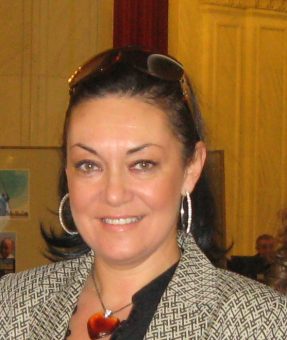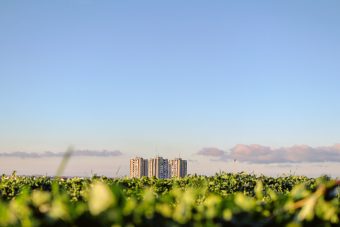
Harmonization of environmental and climate change regulations is a long-term process. It is known that these regulations are continually changing and improving at EU level, as well as a lack of administrative capacity in this area. All this additionally complicates the process, and thus represents a great challenge for the Ministry of Environmental Protection to prepare and propose about 100 bylaws in order to complete the transposition of the acquis in this area, says Biljana Filipovic Djusic.
EP: For Serbia to reach the EU standards in the field of environmental protection, about 15 billion euros is needed. What should be the first and foremost thing to invest money in and how to get the resources?
Biljana Filipovic Djusic: Many documents have been prepared within the draft Negotiating framework. In these documents are given a detailed plan of activities, necessary investments are also calculated and proposals which sources could be used for financing. According to the estimates of the Multi-annual Financial and Investment Plan, 64 per cent of the resources could be financed from the European funds, about 18 per cent from the national budget, 4 per cent form a local budget and the remaining 14 per cent from the loans. The areas that need most of the investment in the following period are wastewater, drinking water, waste management and sludge management. Of course, documents are being drafted, and the final solution will depend on the possibility of withdrawing money from the EU funds but also on the funds earmarked for the environment in the budget of the Republic of Serbia.
EP: Local self-governments have an important role to play in implementing solutions from Chapter 27. Surveys, however, show that the two-thirds of local self-governments in Serbia have only one or none of the employees engaged in environmental protection. How can we raise environmental awareness at a local level?
Biljana Filipovic Djusic: In this case, environmental awareness is not the main problem. The problem is the lack of ecological administration at all three levels (republican, provincial and local). Local employees cannot even do their job responsibly enough when they are engaged in all issues at the same time. The least time is left for investing in environmental issues. As a part of the package of documents accompanying the Chapter 27 Negotiating Position, a draft of Action Plan for the Administrative Capacities Development for the environment has been developed. In this plan, a shortage of about 760 people that need to be recruited in the period prior to EU accession is recognized. It is one of the crucial steps so that an appropriate environmental apparatus in local self-governments would be established, thus enabling the proper implementation of regulations in this area.

EP: Serbia is the largest recipient of EU pre-accession grants in the region of Western Balkans. Which environmental projects have been implemented so far thanks to the donations?
Biljana Filipovic Djusic: Sector for Strategic Planning and Projects at the Ministry carries out the activities for implementation of projects financed from pre-accession funds worth about 40.5 million euros, which are of great importance for the field of environmental protection in Serbia. In accordance with the plan and programme, the ongoing projects from IPA funds are being implemented, such as, among others: construction of Regional Waste management centre in Subotica, construction of wastewater treatment plant in Raska, strategic mapping of noise in Nis, the system for the collection and treatment of wastewater in Kraljevo, the creation of the wastewater treatment plant and the development and rehabilitation of wastewater collection system in Nis and many others. The program IPAs for 2019/2020 are in progress. Based on the comments made by the European Commission, the Environment and Climate Change Action Plan have been finalized and re-sent to Brussels for revision.
In focus:
EP: Compared to the developed countries, Serbia has a minimal share in terms of greenhouse gas emissions. What additional benefits Serbia has and how much that can help us with harmonization with EU standards?
Biljana Filipovic Djusic: I am glad that you have asked that question since we usually talk about the problems we have and the ones we can expect when complying with EU standards. What makes Serbia rich and what can enrich the EU is biodiversity. In this regard, Serbia will propose three additional habitat types to the EU during the negotiation process. These habitats require the establishment of new categories of protected areas and a dozen of species that need to be protected throughout the territory of EU Member States.
EP: At the Innovative Solution Forum last year, you selected 12 projects for the reduction of greenhouse gas emissions. Are any of these projects underway and which ones?
Biljana Filipovic Djusic: The projects presented at the Innovative Solutions Forum were of most interest to investors and based on predefined criteria and technical evaluation, five projects were selected to receive funding for implementation co-financing in April 2019. These are the following innovative projects: the company “Jugo-Impex” from Nis with the project “End of Polyurethane Foam Waste”; the company “Eso Tron” from Rumenka with the project “Reduce Garbage for Collective Health and Happiness”; the company “Sanicula Co” from Gornja Mutnica near Paracin with the project “Innovative Approach in the Production of Biomass Pellet Made from the Processing of Medicinal Plants”; the company “GreenEnergy Point” form Belgrade with the project “New Approach to the Production of Electricity and Heat from Wood Biomass”; the public utility company “Toplana Sabac” from Sabac with the project “Establishment of SCADA System for Monitoring and the Control of Operation of Thermal Substations on the District Heating System of Sabac”. The implementation of these projects started in May 2019 and should be completed by the end of 2020.

EP: You have been working at the Ministry of Environmental Protection for 27 years. It is obvious that nature and ecology are your lifelong commitment. What is ecologically unacceptable to you as a citizen?
Biljana Filipovic Djusic: The greatest environmental crime is reflected in the aggressive behaviour of individuals or legal entities, the destruction of plant and animal species and throwing waste into the rivers. Unfortunately, we still face that on a daily basis and fight against it by any means. A case that recently occurred in the village of Donje Medjurovo near Nis, when an unknown person fired from an air rifle on a white stork, a strictly protected animal species throughout Serbia, has brought the arrogance of individuals into the focus. Cutting a tree is a crime for me. Forests are the lungs of our planet; they give us oxygen and provide so many benefits. The world would be a better place if each of us planted a tree at least once a year. We are not even aware of the fact that afforestation is the cheapest and at the same time, the most effective way of fighting climate change. Our minister has been committed to afforestation since the beginning of his mandate, and at the same time that is also a great mission of all of us who, not only professionally, but also out of love, deal with the environment.
Interview by: Gordana Knezevic
This article was published in the new issue of the Energy portal Magazine on CLIMATE CHANGE, september-november 2019.



